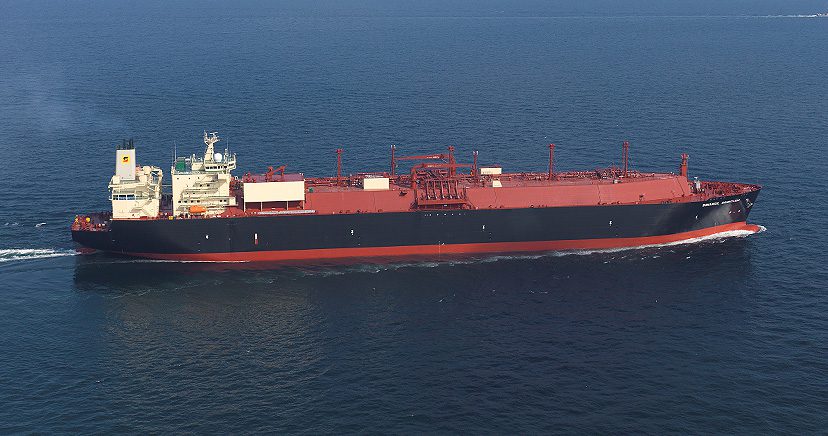Sonangol Sambizanga LNG carrier, image: DSME
 By Oleg Vukmanovic
By Oleg Vukmanovic
MILAN, May 22 (Reuters) – Angola’s new liquefied natural gas (LNG) export project aims to charter out its entire tanker fleet for at least a couple of months after a major rupture on a flare line crippled output at the $10 billion plant last month.
The project partners led by U.S. oil major Chevron have approached shipbrokers to charter out all seven LNG carriers dedicated to Angola’s liquefaction facility, three sources said.
One of the tankers has already been chartered to a shipper and is due to load a cargo in Nigeria soon.
“The other ships are currently being discussed … some of the charters being discussed are at least until July or August,” one of the sources said.
Another source said Angola LNG had expressed interest in locking in any charters that become available.
“But they have been very vague about how long they can charter out the ships,” that source said.
Last month’s rupture of a flare line at Angola LNG was the latest in a string of production setbacks since the plant started production in June 2013.
Operator Chevron has struggled with electrical fires, rig capsizes, pipelines leaks and operator errors at the site.
It remains uncertain for how long the plant will remain out of service as engineers take stock of the outstanding technical challenges before repairs can begin, sources at the site said.
SHIPPING RATES IMPACT
The unexpected addition of so much new shipping capacity is pressuring already weak rental rates, a senior shipping source said.
“The day rate on round-trip vessel charters has slipped below $60,000 and the Angolan vessels are contributing to that slide … their presence in the market is delaying any hopes of a recovery,” he said.
LNG shipping rates have been declining for months due to an oversupply of ships as well as a sharp reduction in Atlantic-Pacific trade flows because of weak demand in Asia.
Chevron has a 36.4 percent share in the Angolan plant, while Angolan state oil firm Sonangol has 22.8 percent. Other stakeholders include Total, BP and ENI . (editing by Jane Baird)

 Join The Club
Join The Club











